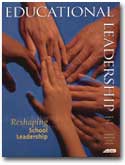<POEM><AUTHOR><SURNAME>Lindamichellebarron</SURNAME></AUTHOR><CPYRT TXTCPYRT="txtnhold" FIGCPYRT="noapply2" TXTPERM="txtyperm" FIGPERM="noapply4"><DATE>1996</DATE><CPYRTNME><SURNAME>Lindamichellebarron</SURNAME></CPYRTNME></CPYRT><POEMLINE>Once upon a time I read a great, big book,</POEMLINE><POEMLINE>I mean, I read a BIG, FAT, GIANT, book</POEMLINE><POEMLINE>and people came from all around the world</POEMLINE><POEMLINE>just to take a look.</POEMLINE><POEMLINE>That's right, they came from all around</POEMLINE><POEMLINE>the whole wide world just to take a look.</POEMLINE><POEMLINE>And I stood up in front of the whole wide crowd,</POEMLINE><POEMLINE>And they all yelled my name out, so I bowed,</POEMLINE><POEMLINE>and I walked up on a mile high stage</POEMLINE><POEMLINE>and I opened the book and read every single page.</POEMLINE><POEMLINE>The people clapped so long</POEMLINE><POEMLINE>their hands got sore.</POEMLINE><POEMLINE>So I had to get another great big book,</POEMLINE><POEMLINE>and read some more.</POEMLINE></POEM>
—From "Once Upon A Time" Copyright © 1996 by Lindamichellebarron
Middle school teachers are faced with the challenge of bringing home to 7th and 8th graders the crucial role of literacy in their personal and academic growth. But can we do this in terms they can relate to? We can describe studies that show correlations between reading scores and future academic and professional success, but to average 12-, 13-, or 14-year-olds, this research may seem far removed from their daily lives.
My approach is to invite students to think about their early literacy experiences and the effect of these events on their current feelings about reading independently. I begin by sharing my own memories of my earliest experiences: When I was 3, my mother would sit me on her lap and read aloud my favorite stories. She sometimes took shortcuts, leaving words or sections out. I, like many children, would not allow that. I would insist that she go back to pages she skipped, and I would literally push her hand back to any word she had left out. Thinking I had memorized the story, my mother was delighted. She even bragged about it to my Aunt Goldie.I worried that these memories were too self-indulgent for these city kids of the '90s. But as I spoke, some students nodded and smiled. I invited them to share their own memories, suggesting they first write about them or sketch the scenes. I asked one of the students to record key quotes and observations of her classmates about the impact of their early experiences on their reading habits.When I was 4, I remember reading "against" my friend Lauren. I mean she could read, but I couldn't. I was in a race to catch up, but I never sat still to get into reading. One day, I sat down, grabbed the book from Lauren, and read for a whole two minutes! Lauren applauded! I realized I could read as well as Lauren, so I've always liked reading in competition with someone.I remember sitting in the back of a Volvo station wagon with my friend Todd. We were chanting, "I can read it all by myself!" and we turned it into a song.When I was about 3, I memorized the first line of a book: "It's wake up time, and Bobby is still sleeping." I can't remember the title. I used to pretend I was reading the book and often caught myself holding the book upside down.My cousin, born two weeks earlier than I, marched into a family gathering at age 4 and announced that she could read. She performed for the entire gang. I knew she had memorized the stupid story! But no one else realized or cared. They showered her with praise. I was very motivated to learn to read.I knew my aunt Carol lived on Shelley Avenue. Once we went there and when we were driving past the street sign, I screamed out to my mom, "There it is!" We were all shocked that I could read, and my mom was so happy and proud of me.
After many volunteers read their recollections to their classmates, I suggested that the students interview adults in their lives to find out what they remembered. One student related how his mother learned to read by chanting in Chinese. Another told how his father had not been permitted to go to school in his native Guyana because he had to help with the family business. His father had longed for the chance to go to school, and he was ecstatic when his son began to read.
Although I never asked students to bring in the first book they ever read, I was surprised when many of these preserved volumes actually emerged in class. Indeed, many students brought their parents' first books, some in foreign languages and some preserved in plastic bags or plastic wrap. The students passed the books around reverently.
Exploring Lifelong Literacy
Over three periods, we talked about the ways our parents and former teachers had or had not nurtured our literacy. Before leading these discussions, I surveyed my students' reading habits and reading preferences. During our conversations, I introduced the terms "lifelong literacy," "emergent literacy," and "nurturing literacy." Because the students had explored the reality of these terms, the terms really meant something to them.
Why not take a few periods to engage your middle school students in a journey back to their independent reading roots? This retrospective will give them an authentic emotional family literacy link. You may even want to use the exercise with your own children; it may well be a catalyst for a lifelong love of reading and literature.
